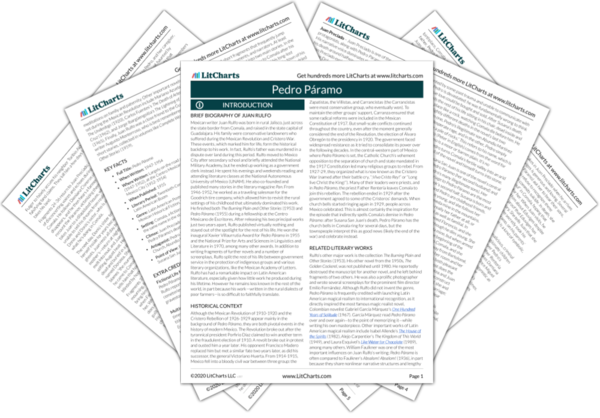Dorotea’s bleak message about hope essentially captures Rulfo’s suspicion of it throughout this novel. All of Dorotea's hopes turn out to be false—which is also the case for Juan, Pedro, and most everyone else in the novel. In fact, Rulfo uses the Spanish word
ilusión here, which means both “hope” and “illusion.” This makes it totally clear that Dorotea sees hope as a delusional form of self-deception that ultimately leads to long-term disappointment and regret. Dorotea’s story about her imaginary son resembles the Mexican folk tale
of La Llorona, the ghost of a woman who wanders the world endlessly, looking for the souls of her children, whom she drowned. While Dorotea does not exactly fit the narrative, there are many variations on the story, and the overall message is the same: La Llorona’s hope to reunite her family turns out to be a delusion, and she cannot bear to live with the despair of reality.
